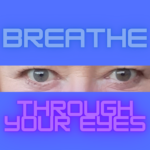
The winter has a huge impact on the eyes and can result in discomfort and pain for a lot of people.
One of the main concerns at this time of year is dry eyes, the symptoms of which include eyes that are itchy, sore, feel gritty, red, blurry, sensitive to light or are more watery than normal.
What causes dry eyes in the winter?
‘There are a number of reasons why people might get dry eyes in the winter including increased exposure to cold, dry air and wind. Or if you’re indoors, central heating can be extremely drying to the eyes because heating the air evaporates the water in it, creating a dry atmosphere. In addition to this there are lifestyle factors that can exacerbate dry eyes in the winter and at any time of the year such as long periods working at a computer screen, a lack of sleep, a poor diet lacking in omega-3 and other nutrients that are vital for healthy eyes, as well as smoking and drinking alcohol. Contact lens wearers are sometimes more prone to dry eyes too, are people over 50, especially women. This is largely due to the hormone changes that occur for women during pregnancy, when using birth control medication or during the menopause.’
Treatments for dry eyes
‘You can treat dry eyes yourself by keeping them clean and taking regular breaks from computer screens. Also making sure you’re not straining your eyes when using a computer, do this by making sure the screen is at eye level. Humidifiers at home can help to stop the air getting dry and also if you wear contact lenses it can help to take them out and wear glasses to give them a rest occasionally. Getting plenty of sleep is essential too. A pharmacist may be able to help by advising on possible treatments such as eye drops, gels, or allergy medicines. Artificial tears or lubricating eye drops are available to buy over the counter and are first line treatment for dry eye disease. However if the problem persists it’s advisable to see your GP or an optician for a thorough eye examination. It’s important to seek a specialist review if the eyes do not improve or there are any changes in vision.’
How to prevent dry eyes
‘You can help to prevent dry eyes by keeping eyes clean and healthy. Eat a healthy diet rich in omega-3, don’t smoke or drink alcohol. Take regular screen breaks when using a computer, tablet or mobile phone, ensure your computer monitor is at eye height to avoid straining, give eyes a rest from contact lenses if you wear them for long periods, and try not to spend too long in air-conditioned or places with central heating, or invest in a humidifier at home to avoid the air drying out.’
‘You should contact your GP or a specialist if you’ve tried home treatments for a few weeks and still have dry eyes. Or if there’s any change to the shape of your eyelids or your vision.’
By Ophthalmic and Oculoplastic Surgeon, Dr Elizabeth Hawkes
About the author

Miss Hawkes is an award-winning oculoplastic surgeon. A trusted expert by the media, Miss Hawkes has featured in many publications discussing eyesight, eye health and anti-ageing.
Miss Hawkes specialises in cosmetic eyelid surgery, including upper and lower eyelid blepharoplasty surgery. And when Miss Hawkes isn’t working in a cosmetic capacity, you will find her in surgery performing sight saving operations. She really is an extraordinary woman.
Working at the renowned Cadogan Clinic Miss Hawkes is a Fellow of the Royal College of Ophthalmologists. She is a full member of the highly respected European Society of Ophthalmic Plastic and Reconstructive Surgeons and the British Oculoplastic Surgical Society.
